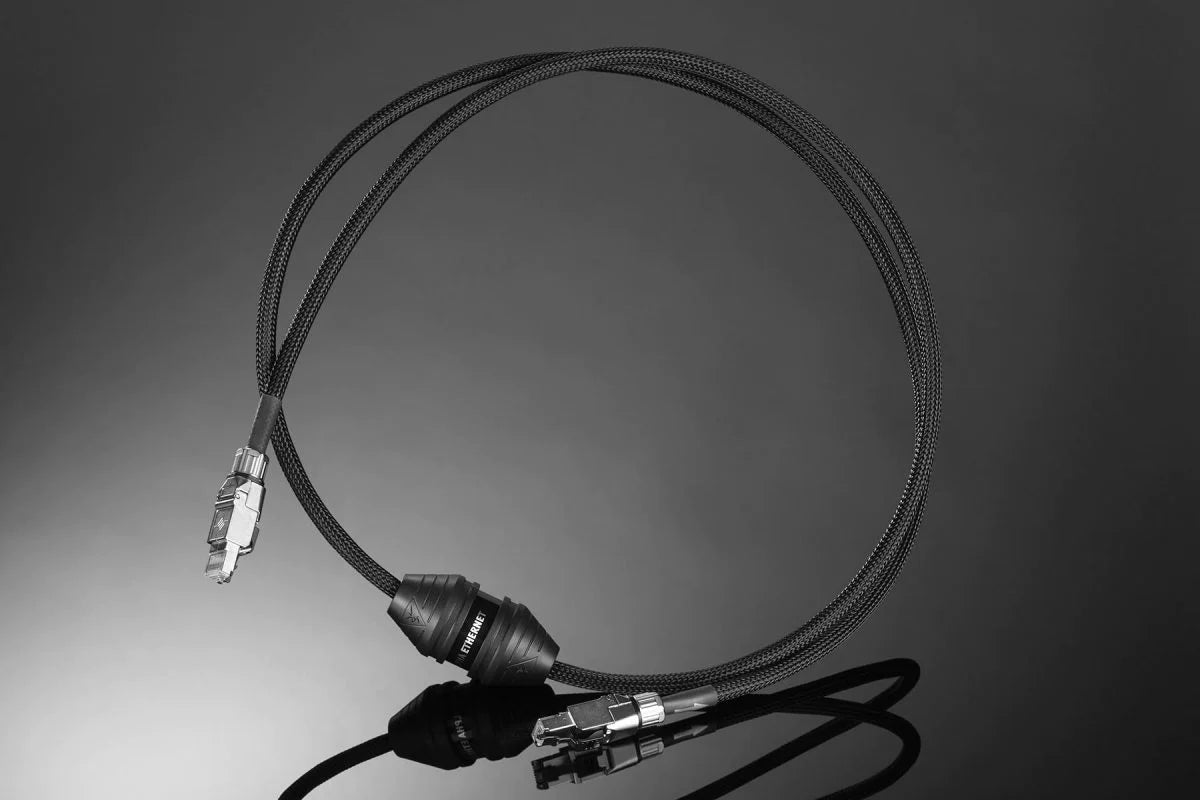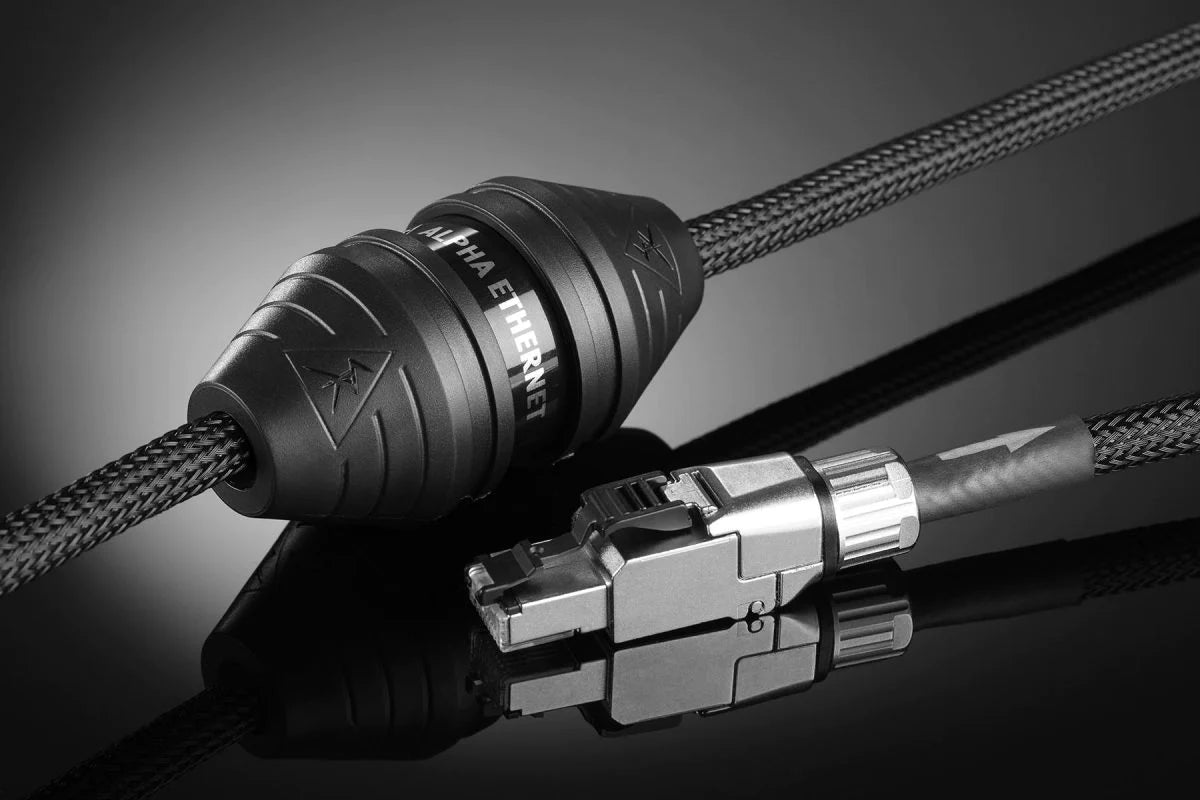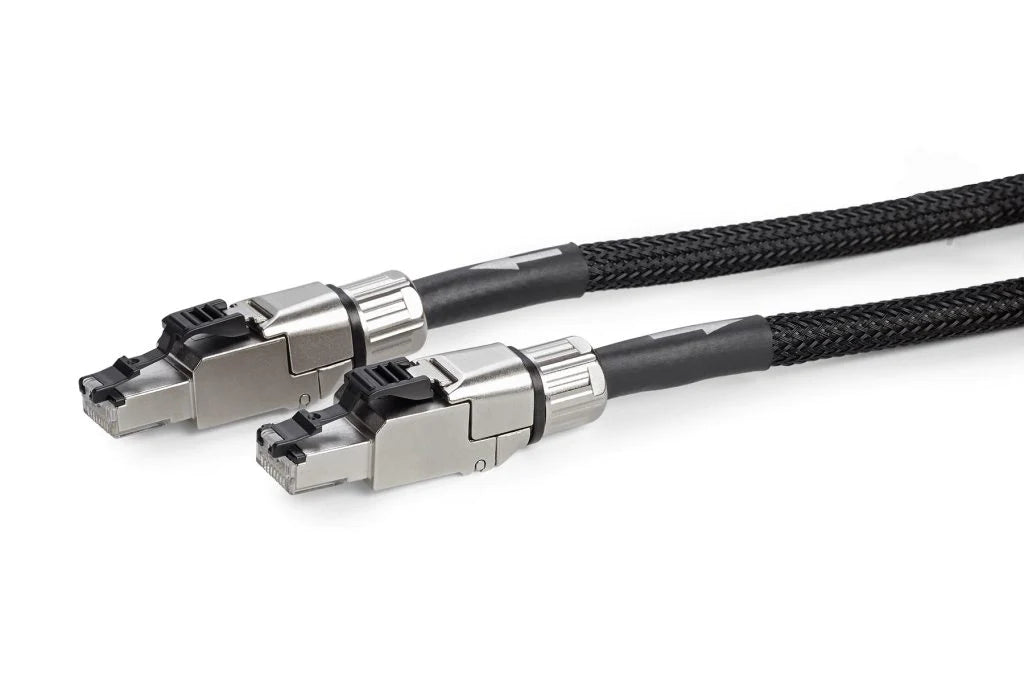


Shunyata Research Alpha Ethernet
What truly sets the Shunyata Research Alpha Ethernet cable apart is its ability to unlock the full potential of high-resolution audio streaming. By effectively reducing noise and interference, this cable preserves the purity of the audio signal, allowing every subtle nuance and detail in the music to shine through. Whether streaming your favorite playlists or indulging in high-definition audio formats, the Shunyata Research Alpha Ethernet cable delivers a level of sonic clarity and realism that will captivate even the most discerning audiophiles. Elevate your digital audio experience to new heights with the Shunyata Research Alpha Ethernet cable and rediscover the magic of your music collection like never before.
Shipping times may vary between 1 to 4 weeks depending on vendor supply and other factors. Please text or call 651-217-2083 to find the most accurate fulfillment times.
Shopify Payments is one of the most secure processors available, using 128-bit SSL encryption technology to protect your information during checkout.
Will this product work in my system? We want you to feel great about your purchase. Many of our products are eligible for a ten day home audition. This allows you to test out the product in your home system, risk free, before you buy. Call or email for details.
Choose options



ALPHA ETHERNET
Shunyata Research's cutting-edge research and innovative technologies have positioned its high-performance Ethernet cables as the most coveted products in their class. The remarkable performance enhancements offered by each model are evident and consistently experienced across various types of audio systems and musical genres.
The Alpha range from Shunyata Research approaches the pinnacle of their digital cables, introducing for the first time their proprietary Cmode filters - designed to combat the effects of RFI without introducing the sonic compression effects associated wiht conventional filters. This cable also features proprietary ArNi ® VTX, OFE and OCC conductors.
High-speed digital transmission is very different from audio frequency signal transmission and requires a different knowledge base and design criteria. Audio cable signal transmission is governed by the principles of inductance, capacitance, and resistance. By contrast, high-speed digital signals are governed by a principle known as ‘transmission line theory’.
The performance of a transmission line is governed by the characteristic impedance of the cable. Certain types of cable require a specific characteristic impedance to achieve optimal performance — for instance, cable TV coaxial cables are 75 ohms, while test equipment cables require 50 ohm cables. Modern audio and entertainment systems may have multiple digital connections, each with potentially different characteristic impedances.
While the characteristic impedance is a critical factor in the optimal performance of digital cables, our research also indicates that the precision with which a digital cable is constructed has a significant impact on its performance.
Superficially, digital cables may look the same as analog cables. For example, a S/PDIF cable can be terminated with RCA connectors, much like analog interconnects. Because the terminations appear the same, analog interconnects could be used as a substitute for a digital cable; but since it has not been designed with the correct characteristic impedance, the performance will suffer.
TECHNOLOGY
 | Shunyata Research digital cables are produced using a Precision Matched Z (PMZ) concept. This means that tolerances of the conductor surface, dielectric extrusion, and the precision of the braided shield are held to minute variances. To achieve these tight tolerances, the extrusion and braiding machines must be run at one-quarter speed during the manufacturing process. The result is better performance through a reduction of cable-induced ‘signal jitter’. (Note: Z means impedance) |
 | ArNi® is a type of wire created by Shunyata Research designed to be the finest quality wire available for audio purposes. It begins with the highest purity of copper available – OFE C10100 or Ohno (single crystal). Then it is formed in virtual hollow tubes eliminating skin effects and eddy current distortions. In addition, the wire undergoes our proprietary KPIP™ process. |
 | TelegartnerThe Telegartner ethernet connector are made in Germany and they performed best in our battery of laboratory tests. Their full metal construction provides shielding between conductor-pairs and eliminate outside interference. |
 | Common-mode noise is different than differential noise and is much more difficult to measure and eliminate. For the purest signal possible, Shunyata Research has developed a CMode filter that effectively reduces common-mode noise without introducing the sonic compression effects associated with conventional filters. It reduces high-frequency noise distortion while delivering an analog ease and palpable background silence that closes the gap between digital and analog systems. – Reduces common-mode noise |
 | KPIP™ PROCESSINGShunyata Research’s proprietary Kinetic Phase Inversion Process includes four days of continuous KPIP™ processing to dramatically reduce burn-in time and significantly improve sonic performance, delivering a relaxed and life-like presentation. |
SPECIFICATIONS
Cable Type: PMZ CAT-6a Conductors: ArNi ® OFE Dielectric: PTFE Connectors: Telegartner | CMODE Modules: single KPIP Processing: 4-days Length: 1.50 meters Safety Assurance: |